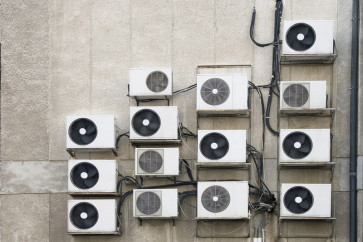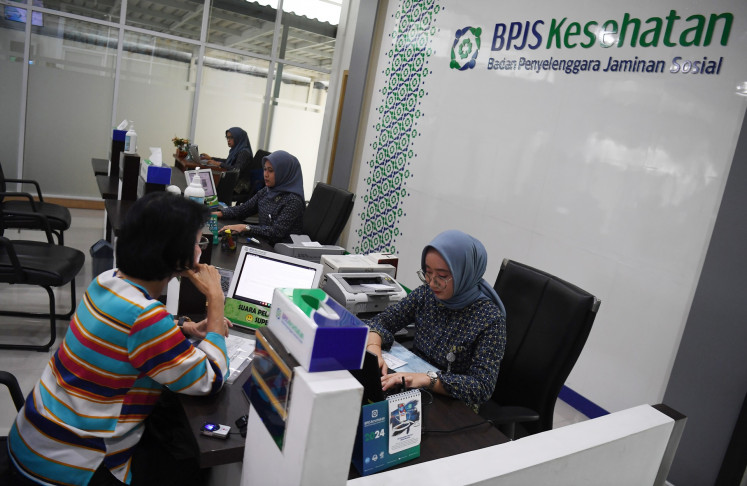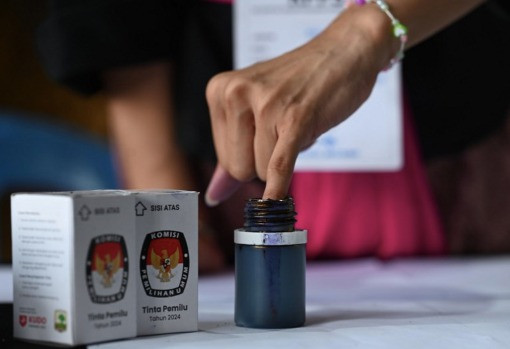Exporters to be affected by new BI rule
Exporters expect favorable terms in the central bank’s yet-to-be-launched regulation that will require them to bring home overseas funds, as their investments and liquidity are at stake
Change Size

E
xporters expect favorable terms in the central bank’s yet-to-be-launched regulation that will require them to bring home overseas funds, as their investments and liquidity are at stake.
Bank Indonesia (BI) on Friday announced a plan to regulate exporters and debtors to send funds from overseas into domestic bank accounts in a move that may add US$31.5 billion in fresh foreign exchange liquidity into the nation’s financial system.
Indonesian Palm Oil Producers Association (Gapki) executive director Fadhil Hasan said the implementation of the regulation will force palm oil exporters to adjust business and investment plans, as foreign exchange earnings that are based overseas are normally invested in offshore refineries in China or European countries.
“The time frame must be clear. For example, exporters are obliged to put their funds in domestic bank accounts for six months or one year, and after that, they can withdraw them again. Otherwise, it will hinder investments, as they need certainty to make business plans,” Fadhil told The Jakarta Post over the phone.
The central bank is still finalizing the regulation, which is likely to be announced within the month at the earliest, BI spokesman Difi Johansyah said.
Indonesia, the world’s largest exporter of crude palm oil (CPO), thermal coal and tin, has been benefitting from a commodity boom this year, seeking to boost export values to a record-high of $200 billion this year.
The central bank’s new rule will likely result in more foreign exchange conversions to the rupiah, potentially strengthening the rupiah further, Fadhil said.
“A stronger rupiah will affect the competitiveness of our palm oil [products],” he said.
The rupiah, one of Asia’s best-performing currencies, has appreciated by about 4.7 percent to the US dollar so far this year, to trade at Rp 8,571 as of Friday.
The Indonesian Furniture Entrepreneurs Association (Asmindo) chairman Ambar Tjahyono said the regulation would hurt furniture exporters as past experiences indicate that it is difficult to cash in dollar earnings here.
Exporters also prefer to park earnings overseas as exchange rates here are uncertain, he added. “The fixed rate in Malaysia, for example, has ensured the Malaysian ringgit does not become too high against the dollar.”
The Indonesian Textile Association (API) chairman Ade Sudrajat expects the new regulation to provide a more stable rupiah. “We really expect that the inflow of export earnings can contribute to this.”
In a broader view, the central bank’s new regulation is a “preemptive” move to weather potential global crises, economists said. At times of crisis, investors turn to safe instruments, such as the US dollar, prompting a sudden reversal that could destabilize the rupiah.
“BI seems to be traumatized by past crisis experiences when forex liquidity dried up in a short period of time and businesses could not cash in their forex earnings and debts,” Bank Mandiri chief economist Destry Damayanti said.
“[The new regulation] appears to be part and parcel of Bank Indonesia’s recent initiative to bolster the economy’s immunity, just in case global financial disruptions take place,” HSBC economist Wellian Wiranto said as quoted by Reuters.









